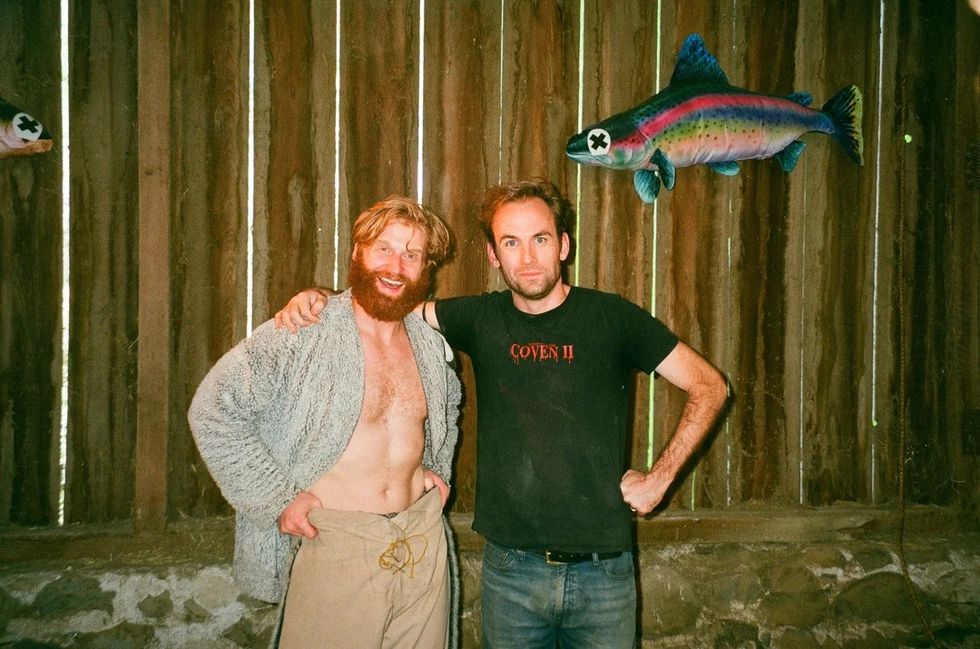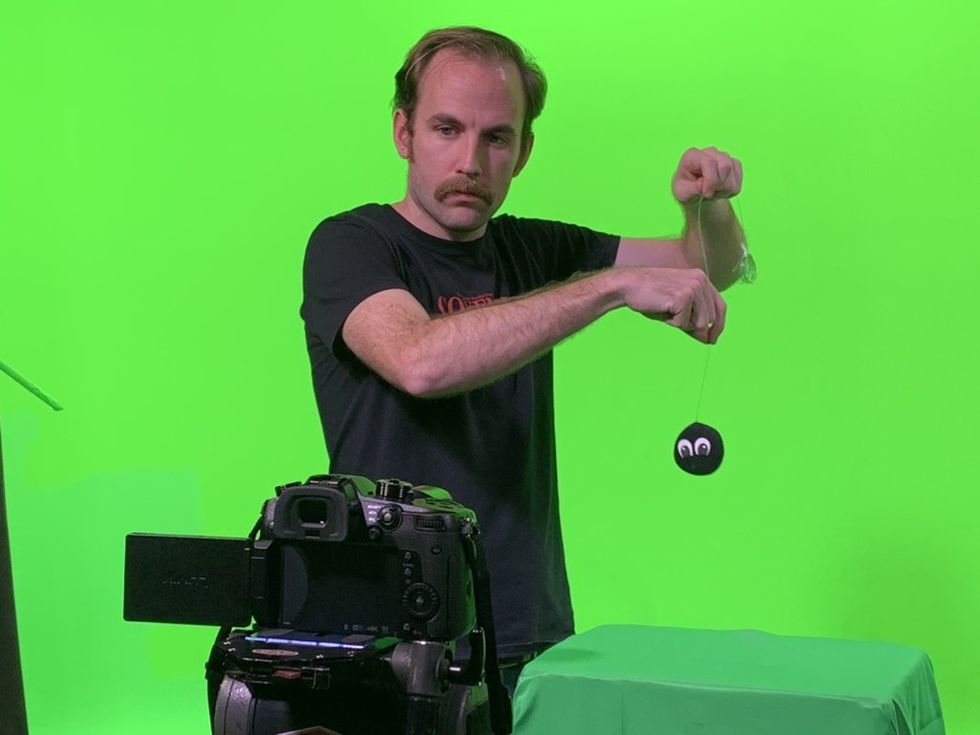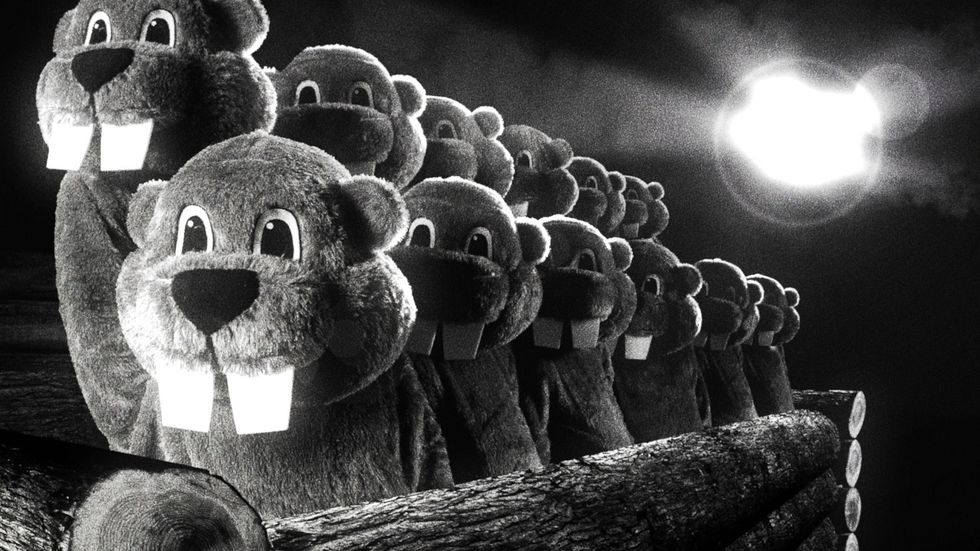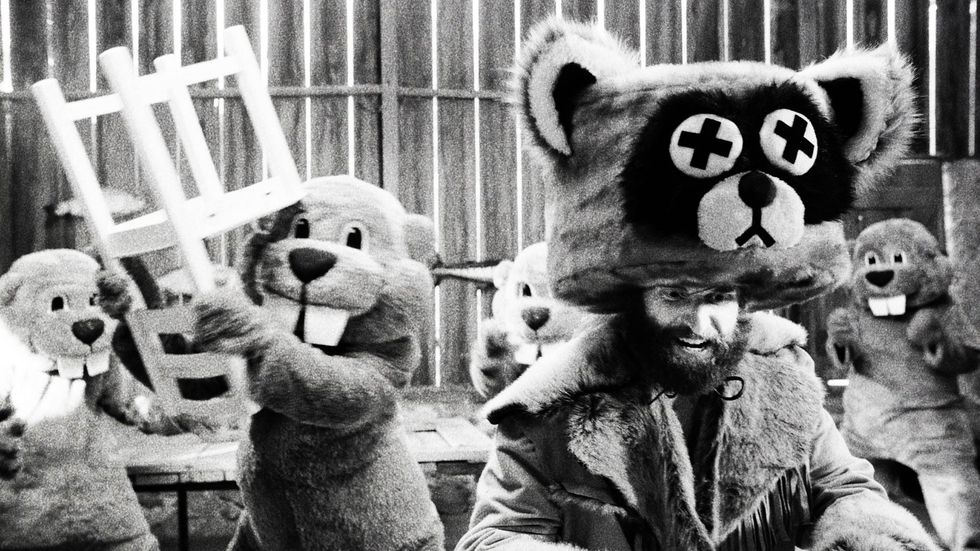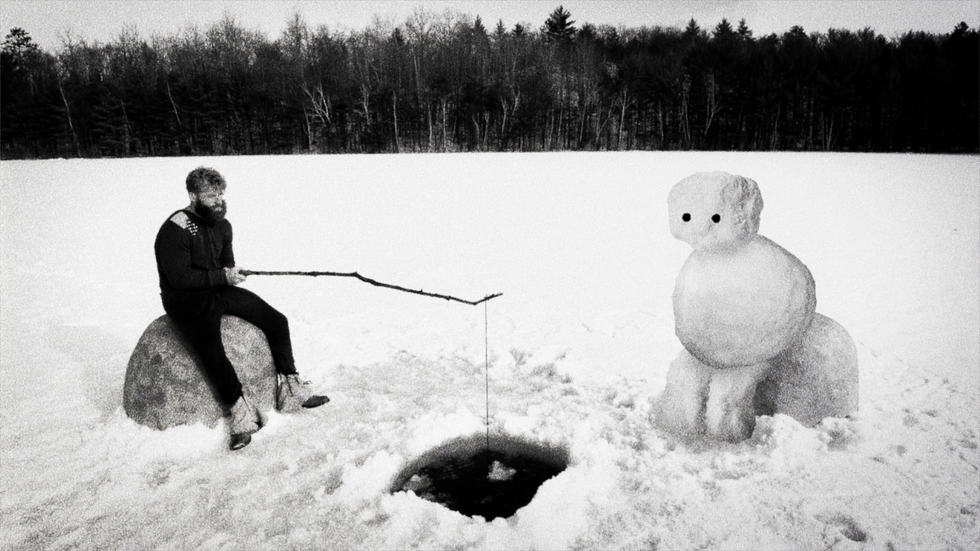A Guide to TV Directing (Or How to Succeed as the Least Important Person on Set)
Just because your name is at the top of the call sheet doesn’t mean you’re the top person on set.
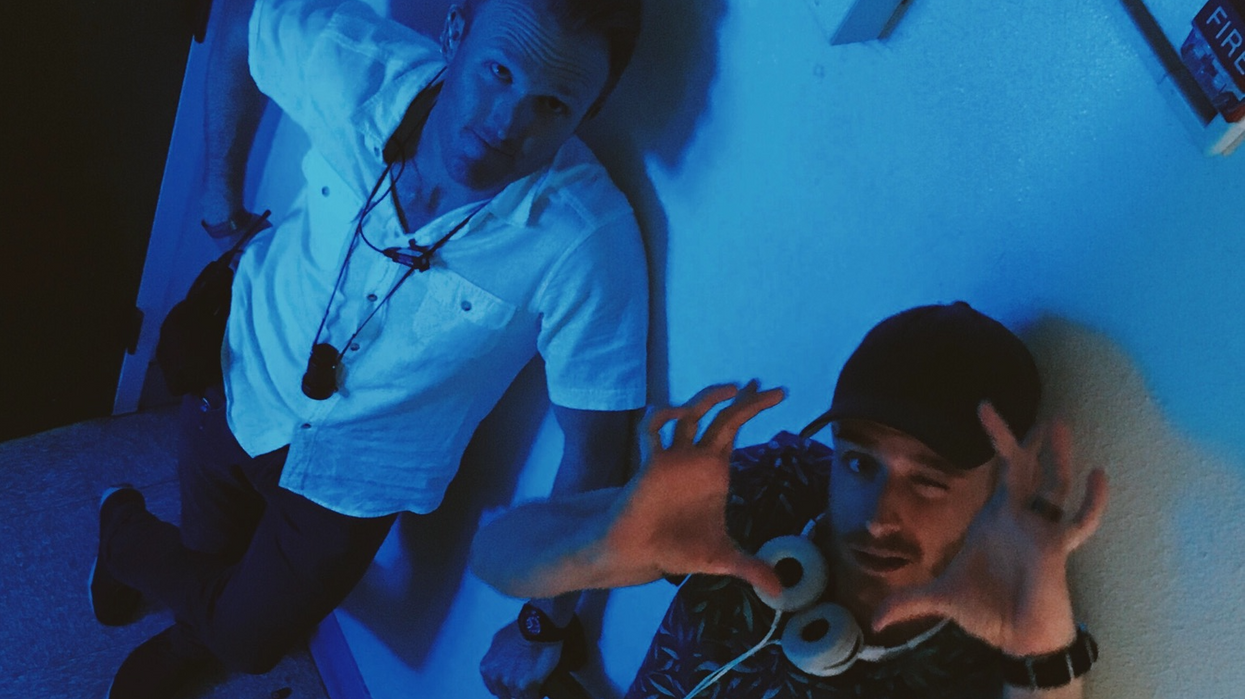
This post was written by Ben Pluimer.
It’s finally happening. You’ve made a short film or a music video, and you caught the attention of a showrunner. They liked your vibe and want to hire you to direct an episode of their TV show. Dreams are coming true—and you, as the director, are about to be the least important person on set. Congrats!
In my career, I’ve been fortunate to direct several TV series, in a few different scenarios.
I’ve been a producer/director, prepping and directing every episode of a show. I’ve been a series director, directing every other episode and helping incoming directors with theirs. And I’ve been a guest director, coming in for a couple of weeks to direct an episode or two of a series. Each has its own challenges, but let’s focus on directing a single episode of a scripted show.
Clearly, “least important person on set” isn’t true. But here’s what I mean.
From the PA to the DP to the cast and producers, everyone who works on a show spends 12 hours a day together for weeks, months, or even multiple seasons. They bond over intense workdays and lively happy hours. They have inside jokes, nicknames for each other, hilarious stories, and an entire set culture that can only come from this unique group of people working on this particular show day after day. It is their show.
You, on the other hand, are an interloper. One of many who will come in to helm an episode. A director who will have their name on the call sheet for a week and then will never be heard from again. Good luck!
Directing an episode is a huge honor and a major responsibility. Know that you will be walking into a situation where a large group of ultra-talented and hard-working people already have an established cadence and flow on set. New directors need to understand just what to expect when they come on board to make an episode of a TV show.

Getting the Job Is the Job
Getting the job is the hardest part of the job. It can take years of work and a lot of luck to get to the point where you’ll be considered to direct for TV.
Let’s assume you’ve made a few really cool music videos, had a hilarious sketch go viral online, or made a short that caught someone’s attention at a film festival. Maybe you’ve been slugging it out for a while and have an agent or manager that sets you up with the perfect meeting. Whatever it is, you have something that has gotten someone’s attention. (You can skip this part by having a famous relative. For the rest of us, we have to work for it.)
In all of these scenarios, you’re going to meet with someone who will decide if you’re right for the job: a showrunner, an executive from the production company, or even an assistant who drops your name to the right person. I was hired to direct a TV series after an assistant saw a low-budget short I made, and he mentioned my name to his boss when they started looking for directors. You never know what is going to get someone’s attention, so just go make stuff.
Guest directing is a likely first gig for a TV director. It’s a good spot to start for directors coming from music videos, digital content, or the commercial world. I’ve seen directors who have only had one strong short in a festival hired to direct an episode of a well-known TV series.
A unique style or storytelling sensibility can get you in the door. Plus, you’ll be surrounded by experienced professionals who can help make sure you don’t go too far off the rails. You just need to get a showrunner’s attention and make them confident that you’d be a good fit for the show.
When you meet with the showrunner, remember that this show is, say, a car they’ve spent their life building, and now you get to take it for a spin. They want someone to come in and execute and elevate their concept, not to reinvent it. So, watch existing episodes of the show, read the scripts, learn as much as you can about the show. Directing an episode is going to be 80% working in their established format, and 20% bringing in your own style and ideas. Sell the showrunner on that 20%, and show them they can trust you with their show.
You’re going to nail the meeting, the producers will see your potential, and they’ll like your vibe. They have decided they can entrust an episode of their show to you! You’ll be in the office and on set a few weeks later to prep and shoot your episode.

You’ll have a week or so to prep your episode. Get ready for a whirlwind of table reads, location scouts, shot lists, and meetings with all the department heads. You’ll be asked and expected to give your creative input on every aspect of the episode. Now is the time to make firm and strong decisions about things you’d like to do when you’re on set.
This DGA Creative guide has lots of great info on what to expect and what your rights are as a director. Even if your show is not DGA, I’ve found that most good productions still adhere to this list pretty well.
Many shows have two 1st ADs; one will be working on set with another director while the other 1st AD preps with the incoming director. Your 1st AD will be with you every day. They’re your sherpa through the episode and will command your set while filming. They’ll be a great source of info about the show and crew. Use them, ask them questions, and get as up to speed as you can.
If you can go visit the set and sit back and observe an episode being taped, do it. It’s a good way to get the vibe of the set. See how the actors work with the director, see how hands-on the showrunner is, see how the different departments flow. Take some mental notes. You are coming onto this set soon and want to work well with everyone.

Work closely with the department heads; wardrobe, makeup, art department. They will all have great ideas and can elevate your episode.
The director of photography commands the largest number of crew on a TV set. They are one of the strongest creative forces on set. Getting along with them will make your job much easier. That doesn’t mean you have to defer to them all the time. A healthy creative discussion is good for the show.
Of all the different department heads, the DP will be the one you spend the most time with. They will have an established look for the show and can help guide you if something you want to do breaks any show rules. Also, try to break the rules a little if it makes sense for the episode. All the departments love a creative challenge, with enough prep.
By the end of your prep week, you’ll have a mostly locked script, a schedule, a shot list, and a good amount of pre-shoot jitters. But you have read through the script a dozen times, you’ve broken down every shot in every scene, you’ve talked through every scenario with the department heads and your 1st AD. You got this.
Rest up over the weekend and re-read everything again before you get to set.
Three Things to Do on Your Prep Week
Shot list. Make a detailed shot list and give yourself something to cross off as you shoot. I read through the scenes in my head, and jot down every shot that I see in my mind. Especially camera moves, insert shots, and the first and last shots of the scene. I’ll also include little helper notes like, “Close-up on her reaction, need to feel the tension.” It helps remind me of my goals for specific shots.
Overheads. Plan out how you want the actors to move through the scene. Plan out how you want the cameras to cover the scene. Overhead diagrams are useful for the DP, camera operators, and actors. They can help you save time by showing how to combine shots or cover a scene with two cameras. Don’t show up on set and have the actors stand in one place saying lines at each other. Come up with a plan that creates movement and energy with cameras and actors.
Script notes and a binder. There will be script revisions throughout the week. Make sure you have all the latest pages and that all of your notes are in there. Put the final script in a binder with your name on it, along with your shot list and overheads, and extra pens. You will 100% forget your binder somewhere on set as you move between locations, so make sure it can find its way back to you. Your episode depends on it.

Shoot Week
It’s the big week!
Check the call sheet, and take a moment to appreciate that your name is in the “director” position. Pre-program the address into your GPS, and set a bunch of alarms to make sure you don’t oversleep.
“If you’re early, you’re on time. If you’re on time, you’re late,” is as true for the director as it is for anyone else on the crew. Show up early, get your breakfast to-go and walk through your first few shots before the rest of the crew gets there.
Those first few shots will set a tone for your entire episode. All the cast and crew will be paying close attention to every decision you make. Are you second-guessing yourself? Does it feel like your blocking makes sense for the characters? Be decisive, confident, and pretend you’re having a good time. Which you will be, once you get those first-day jitters out of your system.
On average, you have five 12-hour days to shoot everything you need for your episode; a couple more days if you’re shooting an hour-long show. It seems like more than enough time, but by the end of the day, you’ll always be rushing to get that one last shot. Here are a few tips to get you through the shoot week.

But Also... Be Prepared. For the big surprises. An actor got a flat tire on the way to set and you need to shoot around them. A location fell through and the blocking you had in mind won’t work at the new one. But it’s all good, since you know the episode forward and backward. You know how to not only shoot around a problem but make it even better. You have a team of problem-solving pros to help figure it out. Keep the train moving, keep the energy up, keep shooting.
Move Quickly. Know when you got the take you needed. Don’t kill your cast and crew with alts and “one-more-to-be-safe” shots.
Take Your Time. Double-check your shot list and the script. A lot is happening all the time, you’ll be talking to a few dozen different people nonstop, and it’s easy to lose track of where you’re at. One time I had a great idea for how to shoot a scene; it was dynamic, interesting, and a little complicated. But when we were block-shooting out a location I got it mixed up with another very similar scene (same actor, same location, same general story beat). I shot the wrong scene in a cool way. I realized it too late and had to make changes to a later scene. It was still very fun and it worked in the edit, but it would have been better had I just taken a moment to look at my script and shotlist.
Listen. Pay attention to your actors, listen to your crew, talk with the 1st AD, script supervisor, and showrunner. They have much more experience with this story world and can help fill in any gaps. If they seem happy and are having a good time, you’re probably doing a great job. If they’re hesitating at your ideas, pitching you too many things you hadn’t thought of, take a moment and get on the same page. It can make a huge difference.
Ignore. Sometimes you just need to ignore someone’s suggestion. Or get one take for them, and one take for you if you have time. I had a script supervisor who was very good at his job. He paid attention to every detail and helped me maintain continuity, get all the shots I needed, and do everything a great scripty should. His attention to detail and continuity was not always great for the comedic vibes of a scene. So once in a while, I’d have to tactfully ignore a continuity note or two from him in the spirit of getting the best performance. He was right, but so was I. Listen to your gut.
Know When to Let It Go. Sometimes you have a great idea, and for whatever reason, when you go to shoot it, it’s just not working. Ten takes in the can, and you still don’t feel like you got what you want. Your 1st AD wants you to move on, your showrunner is happy with what you got, but you’re sure you can figure it out if you reblocked the scene and went for one more take. Maybe you can do it, or maybe it’s just time to move on. I’m guilty of this. I’ve left scenes certain they weren’t working, and if we hadn’t run out of time I could have figured it out. But every time that has happened, by the time I get into the edit, I couldn’t even tell you what it was that I thought wasn’t working. If everyone around you thinks that you got the shot, you probably got it.
Before you know it, the shoot is over, and that’s a wrap on you. The week has been a blur, but you got most of what you hoped for and the cast and crew seem happy with your work. Hit up the nearest bar and toast to your success. The real hard work starts soon... the edit.

The Edit
The footage for your episode landed in the editing bay, and it’s time to make the director’s cut of your episode. It’s time to come face-to-face with every choice you made on set, good and bad.
An editor will make their assembly, and then it’s time for you to watch the episode and dig in with your notes.
You’ll have a few days to work exclusively with your editor. No one else should be giving creative input on your episode at this time, so it’s your chance to make sure that every line, every shot, every music cue is just how you want it.
The post team should keep you in the loop as much as possible for music, visual effects, ADR, and more. Making TV is a team effort, but at the end of the day, this is your episode. You’ll know the story better than anyone, so make sure that all the hard work you put in during prep pays off in the edit. In the end, the showrunner may make different choices than you and make changes to the edit but, hey, it’s their show.
That’s a Wrap
When one shoot is wrapped, it’s off to find the next one.
Hopefully, you nailed it, and all of the producers, cast, and crew will look forward to seeing you back for another episode or on another show. At the end of the day, making a solid episode of a TV show is an amazing thing. But even better is when you’re asked back to do it again and again.
People won’t always remember the episode, but they will remember working with you. Be the person they want to work with again and again. Treat every person on set as if they’re the most important person there; listen to them, show them respect, and collaborate with them. It’s not a secret, but it’s probably one of the best ways to have a long and successful career directing television.
Good luck out there!
Learn more about Ben Pluimer at his website.

